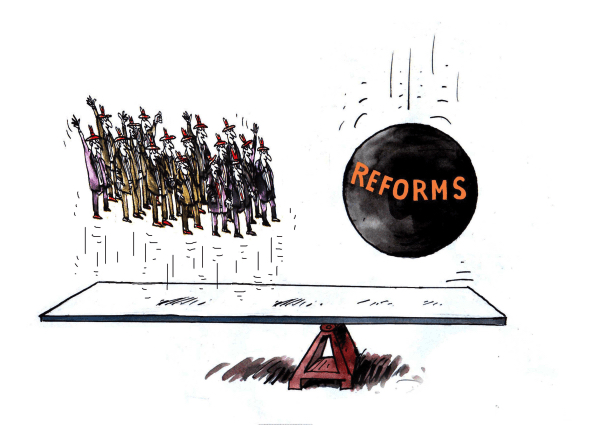Transparency Is the Key to Safety
Law Enforcement Benefits from Public Trust

Having served in law enforcement for decades, I know that the most critical component in solving crime is the public’s trust. When the community doesn’t trust the police, they don’t come forward to tell us what they saw or report crimes as a victim. Contrary to what you see on TV, it’s almost impossible to figure out the “whodunit” part when no one will talk to the police. To restore trust in high-crime communities, a new California law allows the public to view certain police personnel records related to serious officer misconduct. But, regrettably, many police departments are dragging their feet on complying with the law, seriously damaging this opportunity to forge stronger relationships with the communities they serve.
In California and across the country, trust in the legitimacy of our laws and law enforcement has been undermined time and time again by police misconduct and a concurrent lack of transparency that drives people to imagine the worst. Many high-crime communities are fed up with police treating family members as criminals and have all but given up on cooperating. Without assistance from witnesses and crime survivors, those of us who serve our communities faithfully and abide by high ethical standards struggle to live up to our sworn responsibilities. When we don’t hold our own accountable for their wrongdoing, it gets harder and harder for the rest of us to do our jobs.
SB 1421 promised to restore community trust in police by being more transparent about officer misconduct. Initial disclosures under SB 1421 show the importance of sharing some personnel records for officers involved in shootings and serious misconduct. In Los Angeles, recently unsealed records revealed that a sheriff’s deputy with a history of dishonesty dating back to 2003 had testified in dozens of cases since then. The deputy had been disciplined for punching a suspect several times and then lying about it. But prosecutors, defense attorneys, and jurors never received this information, which misled them about the deputy’s credibility as a witness.
As a result of this report, the Los Angeles County District Attorney’s Office notified defense lawyers in more than 30 criminal cases that the deputy’s presence on the witness stand may have unduly influenced jurors and judges, leading to convictions for defendants who may not have been guilty. Defense attorneys are currently considering whether to file appeals.
This is just one example. As this legislation helps expose other misleading officer testimony across the state, Los Angeles County DA Jackie Lacey and other district attorneys should begin proactively reviewing other cases to ensure they weren’t tainted by similar misconduct.
The Los Angeles case demonstrates how police misconduct can undermine trust in the criminal justice system at all levels. When a police officer violates their oath of office and lies about it, they are breaching the contract that law enforcement’s authority is based upon. They are tarnishing the reputation of the entire profession. With SB 1421, law enforcement in California can confront this problem head-on in a good faith effort to restore public confidence in law enforcement and the fairness of the criminal justice system.
However, since SB 1421 went into effect nine months ago, many large agencies are still resistant to releasing records despite the requirements of the statute. These agencies are not only violating the law themselves but are also playing into the hands of critics who argue that we have too many skeletons in the closet to share officer records with the public. Avoiding the ethical and legal responsibility to be transparent only enhances public perception that officers are dishonest and self-serving. It further erodes the effectiveness of law enforcement.
People believe that our failure to take accountability and transparency seriously means that we are more concerned about hiding embarrassing misdeeds than about building trust. Yet more law enforcement professionals are now realizing that trust is the key to strengthening our ability to prevent and solve crime. In every profession, better transparency and accountability produce more trust than uncooperative secrecy.
I firmly believe that the vast majority of police officers — the honest and professional ones — have nothing to fear from this law. But we cannot complain about “a few bad apples” if we refuse to show the records proving that there are only a few.
SB 1421 is an important tool to strengthen public trust so we can get back to work together. I urge our law enforcement agencies to follow the law as if public safety depends on it. Because it does.
Tom Parker served as a California police officer and FBI agent for 24 years, retiring as Assistant Special Agent in Charge of the Los Angeles Field Office. He is a speaker for the Law Enforcement Action Partnership (LEAP), a nonprofit group of police, prosecutors, judges, and other law enforcement officials working to improve the criminal justice system.



